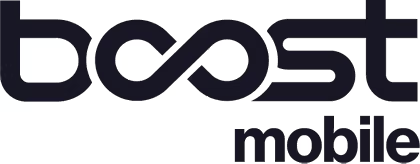Following Boost Mobile’s historic first sponsorship arrangement with Fresno State basketball players Hanna and Haley Cavinder, Boost continues developing its sponsorship program with college athletes as the race to secure the most promotable athletes in the NIL era is underway. Partnering with football and basketball athletes from top schools like Georgia, UCLA and Gonzaga as well as more than a dozen HBCUs, the mobile carrier understands its most impactful athletes are the ones making a difference in their communities, but warns that it’s not a slam dunk for all.
Companies paying big money for the most recognizable names are not getting the proper bang for their buck. Such deals deliver questionable ROI to the company and exacerbate recruiting disparities in elite sports in elite schools.
In addition to helping student athletes monetize their Name, Image and Likeness (NIL) value, Boost Mobile increased awareness of its budget-friendly, commitment-free premium mobile offerings in key markets with six player meet-and-greet events at Boost Mobile locations. To bridge the gap between elite programs and non-elite, Boost immediately broadened its commitments to 100+ mid- and lower-tier student athletes.
“The NIL situation reminds me of music streaming apps: The promise to democratize music ended up starving most artists while a few reap most of the revenue,” said Stephen Stokols, Boost Mobile’s CEO. “If you weren’t Blake Shelton or one of the very top stars, you got a penny per stream, which added up to very little. It’s early, but we’re seeing a similar dynamic with the NIL and want to address it.”
The scope of Boost’s program ranges across a variety of sports like basketball, football, baseball, wrestling, and track. It also crosses the country with schools including Fresno State, Georgia, Tennessee, Florida and Gonzaga, as well as 38 athletes from 17 Historically Black Colleges and Universities including Alabama State, Southern University, Tennessee State University and Prairie View A&M University who will be featured in a social campaign showing the support for HBCU athletes. Collectively, the overall influencer program has an aggregate following of 37 million with NIL athletes representing 50 percent of the talent base.
Stokols added, “Boost Mobile is doing its bit to spread the wealth so athletes from all sized schools can benefit, but we urge other corporations to play their part in making this a fair game for all. NIL should be an exercise in amateur sports funding, not just trophy hunting.”
The first wave of Boost’s sponsorships provided unique fan engagement and opportunities for these athletes to give back to their communities, such as UCLA quarterback Chase Griffin donating a portion of his sponsorship money to the Los Angeles Regional Food Bank, and Gonzaga basketball star Drew Timme giving away turkeys to Spokane-area families at Thanksgiving. Timme also visited local Boost Stores to sign autographs and promote Boost’s new low cost wireless plans.
“We knew from the start that helping student athletes gain control over their financial futures and discover new ways to engage with their fans was good business, and very much in line with how Boost puts power back in our customers’ hands,” continued Stokols. “But we’ve been blown away by their creativity and ambition at finding ways to make a difference in their communities, which has been the most rewarding part of this program.”

